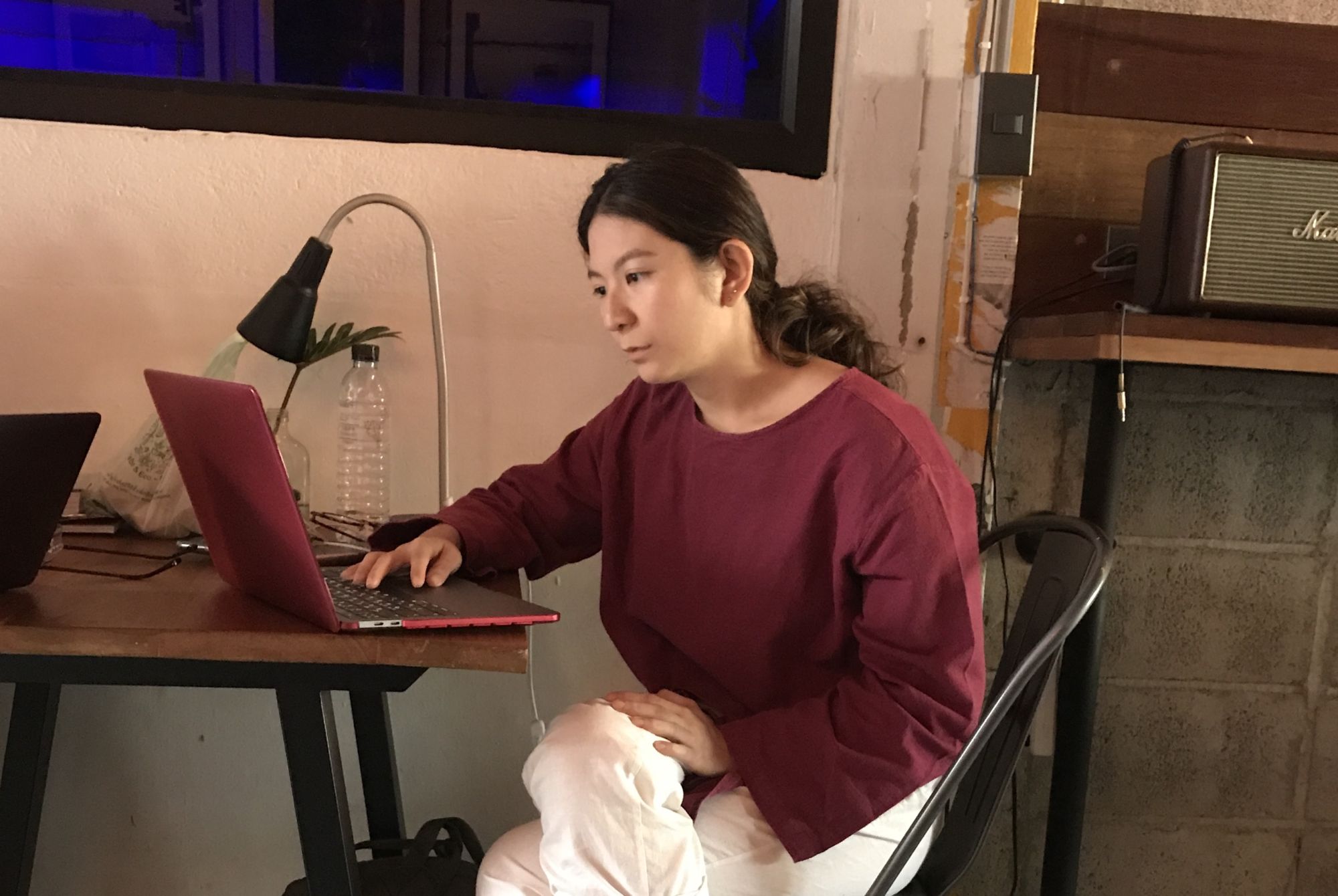Remote work has existed for years.
In fact, With Content has been a fully distributed company since we were founded in 2018. Our teammates hail from all over the world, from as near as another neighborhood in Singapore to as far as a suburb in the United Kingdom. While there are challenges, we’ve come to enjoy the upsides of remote working, and there’s little possibility that we’ll choose to go back to an office anytime soon.
While once an exception, today we’ve become the norm. Because of Covid-19, the ranks of remote workers have multiplied exponentially over the recent months. As of last month, 16 million knowledge workers in the US started working remotely. Tens of millions of people also started working from home in China.
The difference: while With Content and other fully distributed companies made a deliberate choice to pursue this path, these companies and their workers were “forced” by circumstances to go remote.
And as we know well, having your arm twisted to do anything never ends well.
Yet, all the signs point towards remote working being a new reality for many of us in a post-Covid world. Singapore’s Trade and Industry Minister, Chan Chun Sing, recently announced that for those who are able, “we expect them to continue to work from home for the foreseeable future.”
At the moment, more than 80% of Singapore’s workforce is now working at home.
As such, to help newcomers who’ve just begun working from home, we decided to start a series of articles where we interview experienced remote workers to find out how they managed to surmount the challenges and fully embrace the remote working lifestyle.
To kick things off, we’ll be chatting with a content strategist at With Content: our very own Nikki Natividad!

How did you start working remotely?
I’ve previously worked at organizations with flexible workplace policies—we had to go to an office, but a day or two every week we could work from home or wherever we wanted.
This is the first time I’ve worked at a company that was fully remote, and I discovered it looking for freelance writing gigs. A lot of freelance work is done remotely, but I was still surprised to find out that the company had no office whatsoever! When I was asked to join full-time, I was skeptical about the arrangement at first. But I’ve been doing it for around a year or so and I find that this setup really suits me.
What does your typical workday look like?
I try to wake up at 8am (the local quarantine measures have ruined my body clock), make a cup of coffee, and read a couple of pages before getting to work. At 9am I start organizing my workday in an app called Notion, where I plan out all my to-dos before I get to the actual “doing” part. This exercise is good for me mentally and prevents me from getting too overwhelmed by work.
I find that I work best from 10am to 12pm, so I pack 70% of my deep work during that time. All first drafts and edits that need 100% of my brainpower need to be done during that time.
During the afternoon, I’m relatively useless—my brain refuses to function no matter how much I will it to. So I spend that time doing lighter tasks, like replying to emails, updating my to-dos, and getting back to people.
At around 4pm, I’ll recover enough brain cells to do a bit more deep work. So if I’ve written a rough first draft in the morning, I’ll edit it in the afternoon. Not only does this give me a chance to recover my mental energy, but it also gives me enough time to step away from what I first wrote so I can edit with “fresh eyes.”
At around 6pm, I hard stop. No more working. I do this because it allows me to set boundaries between my work hours and the rest of my day. And also because I find that I work best within certain constraints. If I had the whole day to do something, it’s likely I’d put it off until the last minute.
What are the greatest challenges you face to working remotely, and how do you overcome them?
Working remotely offers a unique disadvantage, especially if you’re doing all your work from home (which we all are, these days).
At first, you think that everything is fine. You save so much time and money not commuting, you’re cooking all your meals, your friends think that you’ve hit the jackpot, and your dog is the happiest he’s ever been having you home all day. Remote life is good.
You don’t know when it starts, but at some point, you find your days morphing into one giant work week. Every minute, every hour, you’re flooded with thoughts of work. You only take breaks when you’re eating, sleeping, or in the bathroom—hopefully while you’re in the bathroom. And when the borders between work hours and leisure blur, it gets really bad: the first thing you do when you wake up and the last thing you do before you sleep is work.
The greatest challenge to working remotely is that you decide when work ends and the rest of your life begins, and sometimes it’s difficult to turn off when you know that the option to work is always available to you. (Sometimes remote workers overcompensate knowing that no one is forcing them to work.) There’s also that added guilt in knowing that everyone is stuck in self-quarantine and likely has little to no outside engagements. Don’t get sucked into this trap.
It’s been said time and again, but as a remote worker it’s important to set boundaries. I never really paid much heed to it—I mean, it’s obvious isn’t it? Of course you should always set boundaries! But it isn’t truly obvious until you’re sending emails at 12 midnight with a face mask on and snug in your PJs. Training yourself to simply turn off, I learned, is an acquired skill.
It’s easy to turn your brain off when you’ve packed up and left your work laptop in the office. But for remote workers, your work laptop is your personal laptop too.
So treat every day like a workday. Do NOT work first thing in the morning. Have breakfast, leisurely sip your coffee. And then at 9am when your workday begins, you can sit down and start ripping through your to-do list. Take naps during the afternoon slump—it’s one of the perks! Do your best work until 6pm—then hard stop.
Time to tune out. Take a yoga class, read a book, and do anything except work unless it’s something extremely urgent, which is not usually the case.

What are some habits and tools you use to get things done?
Rather than habits, I focus on mindset. Throughout the years, I found that I spent a lot of time organizing and dreading the work that had to be done. At this point, I’m at a healthy enough place to just cut through all the mind games I play with myself and just start working. “Just do it,” said Nike. And so I did.
Notion. For all the bullet journalers out there, Notion is for you. It’s like the all-in-one productivity platform where you can make lists of everything—from books to read to recipes to try out. You can even create a habit tracker if that’s what you’re into. But I mainly use it for my weekly agenda, and it has helped me organize my work immensely.
Otter.ai. As a writer, I do a lot of interviews, and therefore a lot of transcripts. Transcripts take hours to create, and priorities-wise it’s just not worth it. Otter.ai lets me upload voice notes into its system, and through the magic of AI technology, it will transcribe it for me automatically. This saved me many dreadful hours listening to the same line over and over again.
Remotion. This is a new app that our team just started using. It simulates working in an office with other people by allowing us to call each other instantly. There’s a little screen that I put on the lower lefthand corner of my screen with windows for each of my teammates. If they’re not busy, I can just invite them to chat and their face pops up in a little window. This might be useful for companies who are new to remote work but are doing so because of the quarantine. It helps keep everyone up to date with each other.
How is your home office set up?

Very clean. Just a bare desk with a laptop on it. I also have a cup of coffee and a jug with a liter of water in it so I don’t have to keep going back down to refill. I’m easily distracted, and a clear desk keeps me from fidgeting and cleaning all the time.
What do you enjoy most about working remotely?
Taking naps when I need them. It seems like a small thing, but it’s the best gift to productivity.
Would you consider returning to a traditional in-office job?
I don’t want to close any doors, so I’m not saying all traditional in-office jobs are off the table. There are perks to chatting with real-life, corporeal officemates. But I’ve been spoiled by my naps and the freedom that comes with working on my own terms, so it’s likely that I’ll stick to this arrangement until the time comes I’m talking to my own hand. (Hopefully, it never has to come to that.)
Any recommendations for those who are just starting to work remotely, or considering a switch?
Set boundaries. Don’t let work consume all hours of your life. Trust me, this is possible. It helps to create a schedule that works for you, as well as set up a designated workspace. If you have a home office, then that’s better. But even just a desk in a corner works out.
I don’t bother putting on makeup or work clothes—just more laundry if you ask me. But whatever floats your boat.
Don’t be afraid to rest. You might feel guilty about “slacking off,” but when you go to work in your PJs you need an entirely new mindset. You need to know the difference between resting and slacking off, and you need to know when work ends and life begins.
—
200+ industry-leading tech companies in Southeast Asia are happy clients of With Content. Join them and start delivering valuable content to your potential customers today.



